 | Michael Faraday - 1839 - 614 pages
...decomposable class, Electrolytes (664.) . 824. Then, again, the substances into which these divide, under the influence of the electric current, form an exceedingly...call these bodies generally ions, or particularly unions and • I mean here by voltaic electricity, merely electricity from a most abundant source,... | |
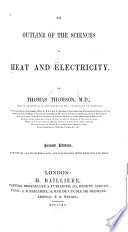 | Thomas Thomson - 1840 - 614 pages
...The elements into which these electrolytes are divided by the Voltaic actions are combining bodies, and have each a definite proportion in which they are always evolved during electrolytic action. They are called ions, and divided into onions and cations according as they appear at the anode or... | |
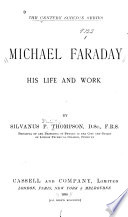 | Silvanus Phillips Thompson - 1898 - 352 pages
...substances into which electrolytes are divided by the current, and which he had called ions, he says : " They are combining bodies ; are directly associated...electrolytic action. . . . I have proposed to call the numbers representing the proportions in which they are evolved electro-chemical equivalents. Thus... | |
 | Sir William Augustus Tilden - 1899 - 284 pages
...of the decomposible class electrolytes. Then, again, the substances into which these divide, under the influence of the electric current, form an exceedingly...call these bodies generally ions, or particularly anions and cations, according as they appear at the anode or cathode, and the numbers representing... | |
 | Arthur Woolsey Ewell - 1909 - 392 pages
...metals, alkalies . . . are evolved there." "Then, again, the substances into which these divide under the influence of the electric current form an exceedingly...call these bodies generally ions, or particularly anions or cations, according as they appear at the anode or cathode, and the numbers representing the... | |
 | Sir William Augustus Tilden - 1913 - 390 pages
...of the decomposible class electrolytes. Then, again, the substances into which these divide, under the influence of the electric current, form an exceedingly...call these bodies generally ions, or particularly anions and cations, according as they appear at the anode or cathode, and the numbers representing... | |
 | Silvanus Phillips Thompson - 1915 - 778 pages
...again, the substances into which these [the decomposable substances or electrolytes] divide, under the influence of the electric current form an exceedingly important general class. ... I have proposed to call these bodies generally ions, or particularly anions and cottons, according... | |
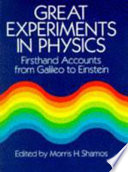 | Morris H. Shamos - 1987 - 384 pages
...decomposahle class, electrolytes (664). 824. Then, again, the suhstances into which these divide, under the influence of the electric current, form an exceedingly important general class. They are comhining hodies; are directly associated with the fundamental parts of the doctrine of chemical affinity;... | |
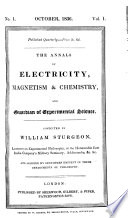 | 578 pages
...decomposable class, Electrolytes (664.). 8'24. Then, again, the substances into which these divide, under the influence of the electric current, form an exceedingly...call these bodies generally ions, or particularly onions andcations, according as they appear at the anode or cathode (665.); and the numbers representing... | |
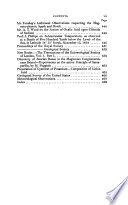 | 1834 - 1276 pages
...decomposable class, Electrolytes (664-.). 824. Then, again, the substances into which these divide, under the influence of the electric current, form an exceedingly...call these bodies generally ions, or particularly unions and cations, according as they appear at the anode or cathode (665.); and the numbers representing... | |
| |